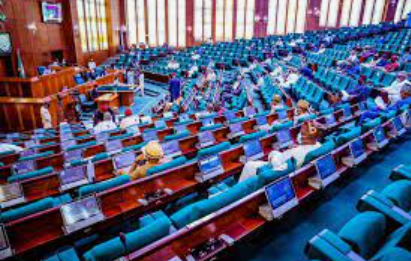
The CBN Governor, Olayemi Cardoso, last week told the National Assembly that about $2.4bn of the $7bn foreign exchange backlog he met upon resumption of office came from non-existing entries, requests without import documents, among other shady deals.
According to Cardoso, the discovery was arrived at following an audit report by consultants employed by the apex bank.
Coming under Order 8, Rule 5 of the House Standing Rules on the “Urgent need to avert the total shutdown of affected Nigerian companies,” sponsors of the motion, Zakaria Nyampa, Ojema Ojetu and Obed Shehu called on their colleagues to wade into the matter for the good of the nation.
Leading the debate, Nyampa who represents Madagali/Michika Federal Constituency, Adamawa State “The invalidated forward contracts were originally entered into about a year ago between various Nigerian manufacturing companies and the Central Bank of Nigeria to hedge against currency fluctuations and risks associated with exchange rates.”
He noted that “Having entered into these agreements, affected companies’ bank accounts debited in naira equivalents and letters of credits issued by the participating commercial banks, the Central Bark of Nigeria decided to dishonour the contractual obligations and cancelled the transactions, one year thereafter.”
The House added that the cancellation of forward contracts is coming at a time of worsening national economic challenges such as galloping inflation, unemployment, Increased poverty level and hardships, adding that if the cancellation is sustained,
“The said transactions will cause the widespread collapse of small and medium companies and the exit out of the country of large corporations with all the attendant consequences thereof.”
To this end, the House mandated its Committee on Small and Medium Enterprises to holistically investigate the cancellation of the forward contract deals.
It also urged the committee to invite Cardoso and the affected manufacturing companies “To examine their documents with the view to identify genuine companies with legitimate transactions.
The committee has three weeks to report back to the House for further legislative action.










